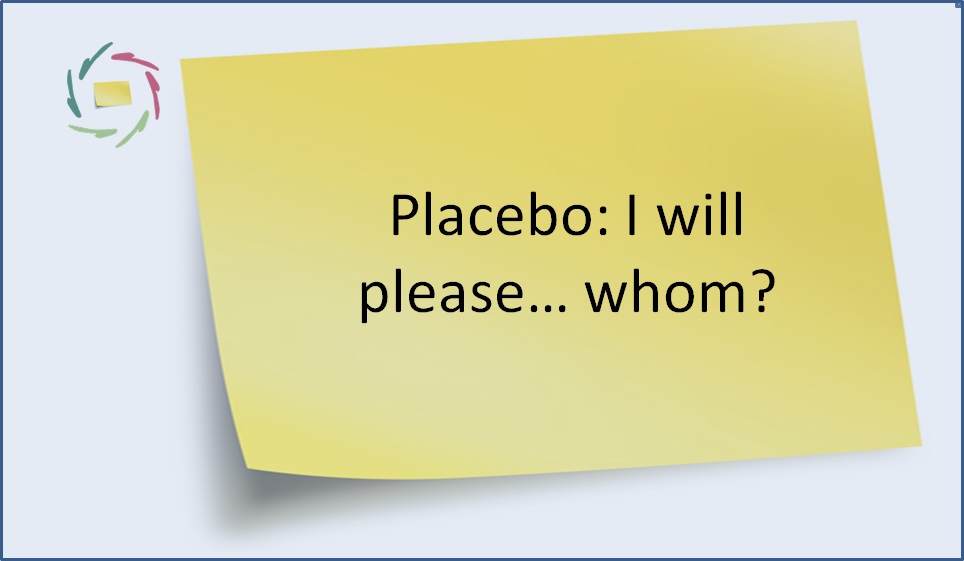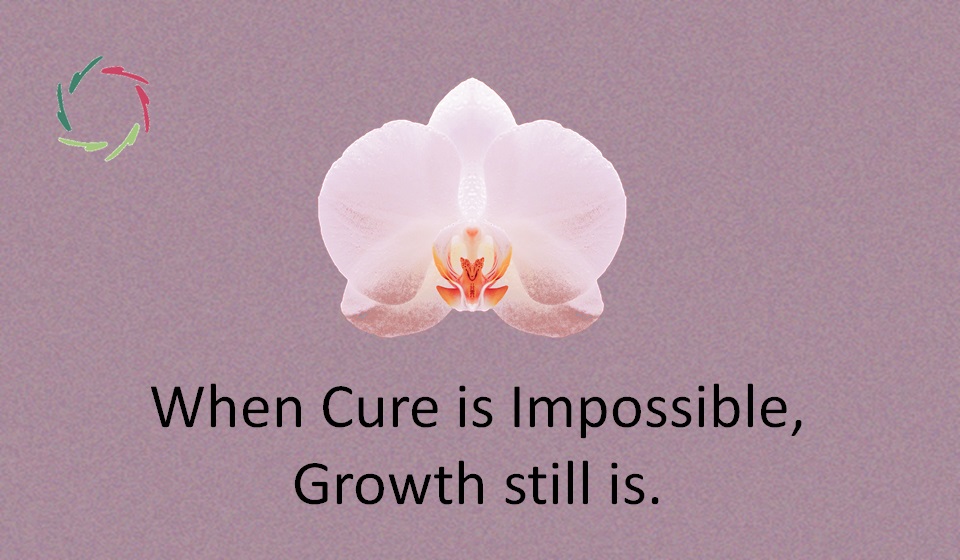50. Placebo: I will please… whom?

Let’s journey a bit on the well-known placebo-effect: getting better from medication until you discover it’s a sugar pill or otherwise doesn’t work in itself. You have probably heard of it. But do you think it’s far from you sickbed? Think again! There’s no medication coming on the market unless it’s been scientifically compared to a placebo… and in the action is found to have itself a placebo effect. So the last time you were under its influence was probably the last time you took medication. We’re all in the placebo boat.
◊◊◊
Fact: the placebo-effect encompasses at the average +/- 50% of the total effect of present-day medication.
◊◊◊
Consequence: this makes placebo the most powerful medication of all. This means: you yourself, the patient as cure, the inner pharmacy…You can heal yourself. This is too good to stay hidden behind a placebo, no?
◊◊◊
Give to medication what belongs to medication
but certainly give to yourself what belongs to yourself!
◊◊◊
The term ‘placebo’ comes from Latin and literally means ‘I will please’. Namely: the doctor pleases the patient with ‘something’ until the patient gets better by himself. This was/is meant to be for the good of the patient, but one can really ask whether in the end this is the case? I think not. In the end, the one who is really pleased, more than the patient, is the doctor him/herself!
◊◊◊
Placebo is a lie. The proverbial sugar pill only works if the taker doesn’t know he’s taking a sugar pill. Now, the following cannot be much of a surprise to you: a lie can never cure! It cannot go deeper than the relief of psychosomatic symptoms. This may ‘please’ in the short run, but certainly not in the long run.
◊◊◊
A lie is a lie.
Health wants truth and nothing but the truth
So help you yourself!
◊◊◊
It’s obvious to me. A placebo heightens a person’s dissociation (see other Sticky Thoughts). In doing so, it brings psychosomatic disease closer by, not further away. It brings you only temporary relief of symptoms. The price you pay is your health and well-being, certainly in the long run, and if you’re unlucky, even your very soul.
◊◊◊
‘Loss of soul.’
Nowadays known as ‘depression’.
◊◊◊
Fact: the placebo-effect encompasses 70-100% of the total effect of modern-day antidepressants.
◊◊◊
Consequence: you may fill this in yourself.
◊◊◊


